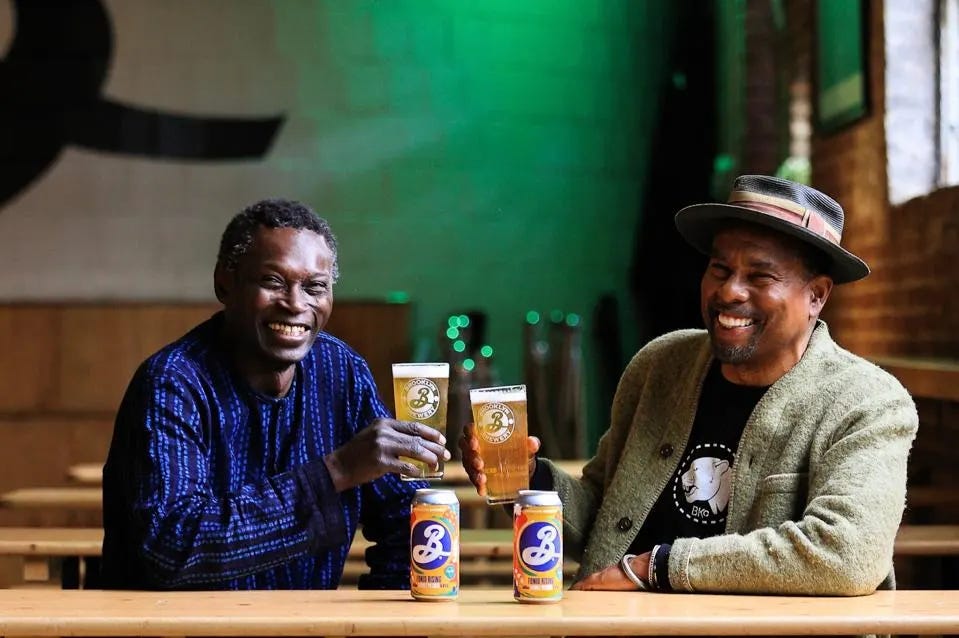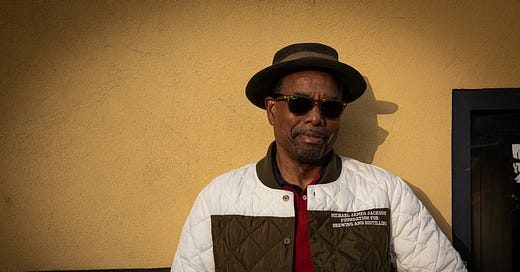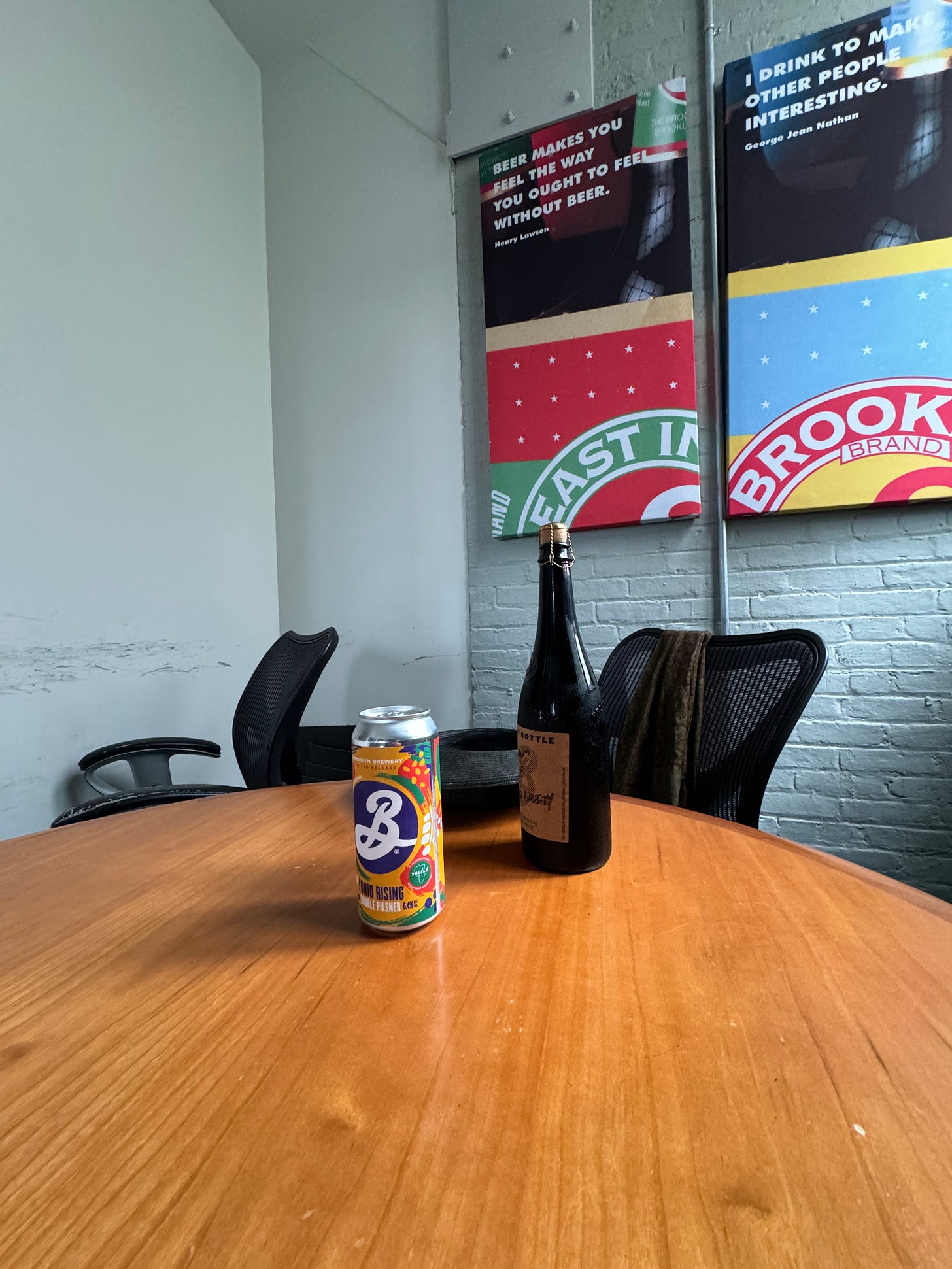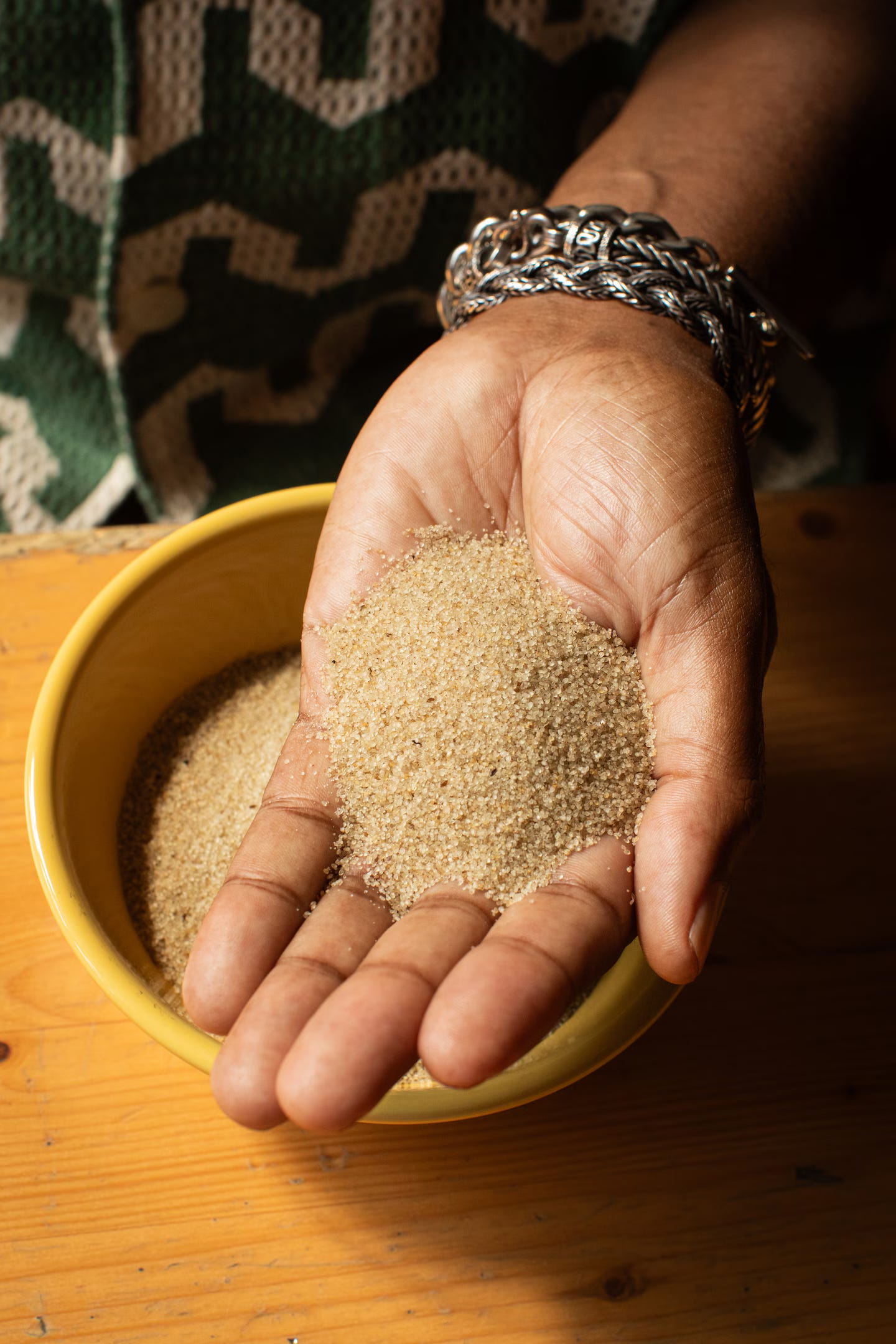Brewmaster Garrett Oliver on climate change, diversity and helping by brewing beer
Can the beer breweries around the world help West African countries to build a better economy by adding an ancient African grain to their beers. Yes, Brooklyn Brewery's brewmaster think so.
Last fall I attended a press lunch at Nya Carnegiebryggeriet (NCB) in the south part of Stockholm. The brewery is a sister brewery to Brooklyn Brewery and was founded in 2014. I was there when Swedens then Minister of Agriculture cut the ribbon. Or was it a barrel of beer he opened to inaugurate the brewery? Yes, of course it was!
Since then I’ve paid a lot of visits to the brewery. Often with beer and food pairings on as a main reason. And so even this time. The reason for the press lunch was to celebrate 35 years of the iconic Brooklyn Lager. It was an amazing three-course lunch by Swedish chef Marion Ringborg, with Panket (west african bread) as a starter followed by the main course; rice cooked in chicken fat and broth, served with char and chermoula (north african spice mix) butter paired with a beer brewed with a grain that is the reason for this long interview with Garrett – Fonio Rising. More on that soon.
Two weeks later I’m meeting Garrett Oliver again, this time at the brewery in Williamsburg, Brooklyn. We’re walking through the open office landscape on the second floor to a small conference room. Garrett, whose contribution to the craft beer world cannot be overstated, wants his legacy to be something more. Deeper. More connected to his west African roots.
”This you already had in Stockholm, but if you would like a refresh, I'm letting this warm up”
Garret is putting down two beers on the table between us, one of them a can of Fonio Rising and I am tell him my thoughts of the interview. How I want to focus on three things. The fonio grain and how we can, with the help of beer, raise awareness of biodiversity and global warming. And his Michael Jackson Foundation.
This is a long interview (more than 10000 words), so I will divide it into two parts. The second part will be released in just over a week in the next Beer Buzz newsletter. Sign up so you don’t miss it. Enjoy part 1!
Fonio is a nutritious and climate-resilient grain, and has been cultivated in Africa for over 5,000 years. It’s gluten-free, with four times the protein, thrice the fiber and nearly twice the iron of brown rice, as well as a low glycemic index. WWF has listed fonio as one of 50 future foods. The global fonio production is very limited today, only one third of one per mille of world grain production. The seeds is super small, one kilo of fonio contains two million seeds.
How did the fonio project start? Did you get contacted?
No, what happened was, I met the Senegalese chef Pierre Thiam who is a partner in the African foods company, Yolélé. We met at Questlove's house in 2019. I was on the board for the Museum of Food and Drink and Questlove was good enough to host a fundraiser at his home. Pierre was one of the people who was there. So I started talking to Pierre and he told me what he was doing. And I'm like, I've never heard of this grain. What is that? And he was telling me about it. And he said ‘I did a TED talk, you should check it out’. So the next day I had a look at his TED talk. He had 1.2 million views for a 15 minute talk on grain. And I'm like, ‘this must be pretty good’.
I saw the TED talk and I just started thinking, as I said at the lunch in Stockholm, people think, of course, in the context of where they're from. So, we are told that Elvis is the king of rock and roll, when in fact it's not quite true. We're also told that beer is European, just because we are producing beer in European styles, that has no bearing on the fact that the rest of the world has been making beer. And, you know, in Africa, beer is central to almost every traditional society, like on the entire continent. Sometimes they're still making these styles of beers only for festival days. Some places like South Africa, there are everyday drinks that indigenous people drink and are not being made by big brewers. They're sold sometimes just at street corners or you buy it from a friend. The same thing that mezcal would have been in Mexico 20 years ago. Most mezcal, even the great stuff, was traded between people. It wasn't sold. So, in any case, I was thinking about that. I'm like, well, people must have been brewing beer from every grain. They must have been making beer from fonio. So I'm like, I wonder what that's like. So I got some fonio in and I made a beer called Taranga, which was 50 percent fonio. And it was really great! We poured it in 2019 at the Great American Beer Festival. And we had like the longest line that we had ever had people. Brewers telling other brewers to come taste this beer. But fonio, because of the traditional processing, is still fairly expensive compared to malt. So at 50 percent it's hard to make any money, on a beer at that concentration. But even flavor-wise, I found that 20 percent was really nice. And the fonio, when it ferments, gives you this kind of lychee fruit, Gewurztraminer, it’s almost wine-like in its character that was not otherwise in these beers.







